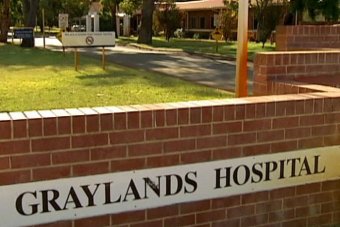
‘Surely as a nation we are better than this’
May 2, 2016
Closing Graylands Hospital is a step in the right direction
May 2, 2016Once upon a time, the Federal Treasurer, Joe Hockey frustrated many would be first home buyers by saying “get a good job that pays good money”. Needless to say, it caused a storm.
More recently, following the 2016 Budget announcement the Prime Minister, Malcolm Turnbull, suggested young people don’t need extra assistance to buy homes because their parents should “shell out” to help them.
The budget does nothing for young people struggling to break into the housing market; the PM was asked about the issue on the radio the morning after the budget was announced. When asked by host about whether focusing housing policy on older, established investors and homeowners rather than young homebuyers was creating an “intergenerational conflict,” Turnbull said young people should be hitting up their parents for a handout. When asked if the host’s children were locked out of the market, Turnbull said “you should shell out for them, you should support them, a wealthy man like you.”
That, like Hockey’s comments did not go down well.
Negative gearing and housing policy is already a key issue in the lead-up to next Federal election, with team Turnbull already committing to keeping negative gearing and promoting how their policies will keep house prices high, in contrast, the opposition has been calling for reform to negative gearing laws to help enable young homebuyers to break into the market.
Another Federal politician has claimed that young people were entering a market average house prices are now 10 times the average annual income, while “their parents paid perhaps two or three times their annual income for their home.”
Home ownership in Australia is the Great Australian Dream. Having a largely home-owning population has ensured both the social benefit of housing, and an economic benefit through enforced saving with long-term capital growth.
First home buyers are competing with experienced investors equipped with tax breaks and negative gearing. Last year, more than half of new home loans went to investors, rather than to people wanting to buy a place to actually live in.
The current negative gearing debate separates the cultural and economic meaning of home ownership. It does this by focusing on investment. Negative gearing promotes property ownership but not home ownership. Thus the social benefits of home ownership that we have come to expect give way to base economic indicators in relation to much investment is happening.
The resulting reduction in owning our homes also means a substantial shift to rental. Apart from being a home-owner or taking the more risky option of private rental, there are few alternative, secure, housing tenures.
Negative gearing in the current economic environment also promotes a significant wealth gap between existing investors and future generations.
What would benefit ‘ordinary’ Australians instead, is a comprehensive policy that addresses housing affordability, and secure housing more generally, in the current economic climate.
Those who are already home-owners or investors can almost certainly count on long-term capital growth; a good return on their investment. In contrast, those who are not yet home-owners, and who may never become so, are likely to remain excluded from home ownership through a combination of economic factors including low wages, precarious work, increasing debt, and an inflated property market. Negative gearing does not provide these people with an economic benefit. For government to suggest that these are ‘mums and dads’ who will benefit from negative gearing fails to understand the economic conditions they face.
The current laws are skewed against intergenerational equity in the distribution of wealth, and also in distribution of the social good of secure housing. This means the Turnbull government’s current policy position on negative gearing supports structural inequality.
In contrast a comprehensive policy that addresses housing affordability and secure housing would benefit ‘average’ Australian people.



